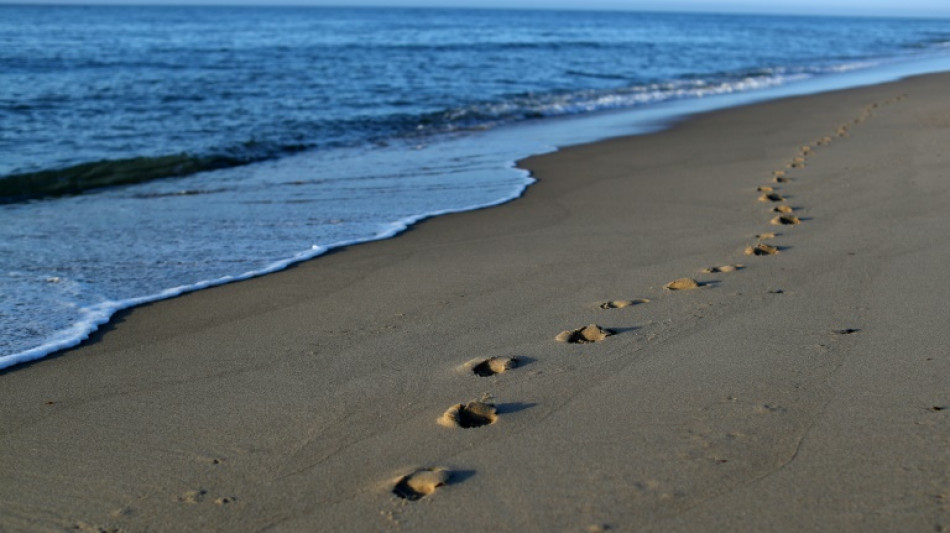
-
 Zelensky stops in Canada en route to US as Russia pummels Ukraine
Zelensky stops in Canada en route to US as Russia pummels Ukraine
-
Arteta salutes injury-hit Arsenal's survival spirit

-
 Wirtz scores first Liverpool goal as Anfield remembers Jota
Wirtz scores first Liverpool goal as Anfield remembers Jota
-
Mane rescues AFCON draw for Senegal against DR Congo

-
 Arsenal hold off surging Man City, Wirtz breaks Liverpool duck
Arsenal hold off surging Man City, Wirtz breaks Liverpool duck
-
Arsenal ignore injury woes to retain top spot with win over Brighton

-
 Sealed with a kiss: Guardiola revels in Cherki starring role
Sealed with a kiss: Guardiola revels in Cherki starring role
-
UK launches paid military gap-year scheme amid recruitment struggles

-
 Jota's children join tributes as Liverpool, Wolves pay respects
Jota's children join tributes as Liverpool, Wolves pay respects
-
'Tired' Inoue beats Picasso by unanimous decision to end gruelling year

-
 Thailand and Cambodia declare truce after weeks of clashes
Thailand and Cambodia declare truce after weeks of clashes
-
Netanyahu to meet Trump in US on Monday

-
 US strikes targeted IS militants, Lakurawa jihadists, Nigeria says
US strikes targeted IS militants, Lakurawa jihadists, Nigeria says
-
Cherki stars in Man City win at Forest

-
 Schwarz records maiden super-G success, Odermatt fourth
Schwarz records maiden super-G success, Odermatt fourth
-
Russia pummels Kyiv ahead of Zelensky's US visit

-
 Smith laments lack of runs after first Ashes home Test loss for 15 years
Smith laments lack of runs after first Ashes home Test loss for 15 years
-
Russian barrage on Kyiv kills one, leaves hundreds of thousands without power

-
 Stokes, Smith agree two-day Tests not a good look after MCG carnage
Stokes, Smith agree two-day Tests not a good look after MCG carnage
-
Stokes hails under-fire England's courage in 'really special' Test win

-
 What they said as England win 4th Ashes Test - reaction
What they said as England win 4th Ashes Test - reaction
-
Hong Kongers bid farewell to 'king of umbrellas'

-
 England snap 15-year losing streak to win chaotic 4th Ashes Test
England snap 15-year losing streak to win chaotic 4th Ashes Test
-
Thailand and Cambodia agree to 'immediate' ceasefire

-
 Closing 10-0 run lifts Bulls over 76ers while Pistons fall
Closing 10-0 run lifts Bulls over 76ers while Pistons fall
-
England 77-2 at tea, need 98 more to win chaotic 4th Ashes Test

-
 Somalia, African nations denounce Israeli recognition of Somaliland
Somalia, African nations denounce Israeli recognition of Somaliland
-
England need 175 to win chaotic 4th Ashes Test

-
 Cricket Australia boss says short Tests 'bad for business' after MCG carnage
Cricket Australia boss says short Tests 'bad for business' after MCG carnage
-
Russia lashes out at Zelensky ahead of new Trump talks on Ukraine plan

-
 Six Australia wickets fall as England fight back in 4th Ashes Test
Six Australia wickets fall as England fight back in 4th Ashes Test
-
Dental Implant Financing and Insurance Options in Georgetown, TX

-
 Man Utd made to 'suffer' for Newcastle win, says Amorim
Man Utd made to 'suffer' for Newcastle win, says Amorim
-
Morocco made to wait for Cup of Nations knockout place after Egypt advance

-
 Key NFL week has playoff spots, byes and seeds at stake
Key NFL week has playoff spots, byes and seeds at stake
-
Morocco forced to wait for AFCON knockout place after Mali draw

-
 Dorgu delivers winner for depleted Man Utd against Newcastle
Dorgu delivers winner for depleted Man Utd against Newcastle
-
US stocks edge lower from records as precious metals surge

-
 Somalia denounces Israeli recognition of Somaliland
Somalia denounces Israeli recognition of Somaliland
-
The Cure guitarist and keyboard player Perry Bamonte dies aged 65

-
 Draper to miss Australian Open
Draper to miss Australian Open
-
Police arrest suspect after man stabs 3 women in Paris metro

-
 Former Montpellier coach Gasset dies at 72
Former Montpellier coach Gasset dies at 72
-
Trump's Christmas gospel: bombs, blessings and blame

-
 Russia lashes out at Zelensky ahead of new Trump meeting on Ukraine plan
Russia lashes out at Zelensky ahead of new Trump meeting on Ukraine plan
-
Salah helps Egypt beat South Africa and book last-16 place

-
 Australia's Ikitau facing lengthy lay-off after shoulder injury
Australia's Ikitau facing lengthy lay-off after shoulder injury
-
Another 1,100 refugees cross into Mauritania from Mali: UN

-
 Guardiola proud of Man City players' response to weighty issues
Guardiola proud of Man City players' response to weighty issues
-
Deadly blast hits mosque in Alawite area of Syria's Homs


New threat to privacy? Scientists sound alarm about DNA tool
The traces of genetic material that humans constantly shed wherever they go could soon be used to track individual people, or even whole ethnic groups, scientists said on Monday, warning of a looming "ethical quagmire".
A recently developed technique can glean a huge amount of information from tiny samples of genetic material called environmental DNA, or eDNA, that humans and animals leave behind everywhere -- including in the air.
The tool could lead to a range of medical and scientific advances, and could even help track down criminals, according to the authors of a new study published in the journal Nature Ecology & Evolution.
But it also poses a vast range of concerns around consent, privacy and surveillance, they added.
Humans spread their DNA -- which carries genetic information specific to each person -- everywhere, by shedding skin or hair cells, coughing out droplets, or in wastewater flushed down toilets.
In recent years, scientists have been increasingly collecting the eDNA of wild animals, in the hopes of helping threatened species.
For the new research, scientists at the University of Florida's Whitney Laboratory for Marine Bioscience had been focused on collecting the eDNA of endangered sea turtles.
- 'Human genetic bycatch' -
But the international team of researchers inadvertently collected a massive amount of human eDNA, which they called "human genetic bycatch".
David Duffy, a wildlife disease genomic professor at the Whitney Laboratory who led the project, said they were "consistently surprised" by the amount and quality of the human eDNA they collected.
"In most cases the quality is almost equivalent to if you took a sample from a person," he said.
The scientists collected human eDNA from nearby oceans, rivers and towns, as well as from areas far from human settlements.
Struggling to find a sample not tainted by humans, they went to a section of a remote Florida island inaccessible to the public.
It was free of human DNA -- at least until a member of the team walked barefoot along the beach. They were then able to detect eDNA from a single footprint in the sand.
In Duffy's native Ireland, the team found human DNA all along a river, with the exception of the remote mountain stream at its source.
Taking samples from the air of a veterinary hospital, the team captured eDNA that matched the staff, their animal patient and viruses common in animals.
- 'Perpetual genetic surveillance'? -
One of the study's authors, Mark McCauley of the Whitney Laboratory, said that by sequencing the DNA samples, the team was able to identify if a person had a greater risk of diseases such as autism and diabetes.
"All of this very personal, ancestral and health-related data is freely available in the environment, and it's simply floating around us in the air right now," McCauley told an online press conference.
"We specifically did not examine our sequences in a way that we would be able to pick out specific individuals because of the ethical issues," he said.
But that would "definitely" be possible in the future, he added.
"The question is how long it takes until we're at that stage."
The researchers emphasised the potential benefits of collecting human eDNA, such as tracking cancer mutations in wastewater, discovering long-hidden archaeological sites or revealing the true culprit of a crime using only the DNA they left in a room.
Natalie Ram, a law professor at the University of Maryland not involved in the research, said the findings "should raise serious concern about genetic privacy and the appropriate limits of policing".
"Exploiting involuntarily shed genetic information for investigative aims risks putting all of us under perpetual genetic surveillance," she wrote in a commentary on the study.
The authors of the study shared her concerns.
McCauley warned harvesting human eDNA without consent could be used to track individual people or even target "vulnerable populations or ethnic minorities".
It is why the team decided to sound the alarm, they said in a statement, calling for policymakers and scientists to start working on regulation that could address the "ethical quagmire".
L.Miller--AMWN



